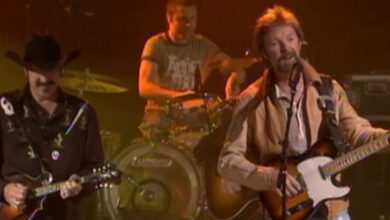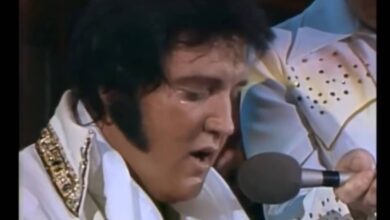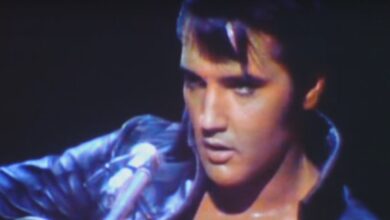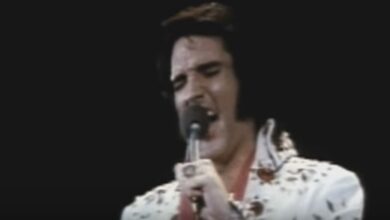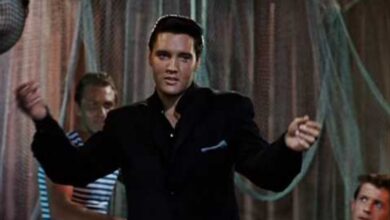Pain was in his voice; two months later he passed away, his roar weaker but still a lion
Johnny Cash’s final live performance on July 5, 2003, at the Carter Family Fold in Hiltons, Virginia, stands as a poignant testament to the enduring legacy of an American music icon. Just two months before his passing, Cash took the stage amidst significant personal challenges. His health was frail, battling severe vision loss and physical weakness. Despite these obstacles, Cash exhibited remarkable resilience, demonstrating his unwavering dedication to his craft and his audience.
Opening the concert with his iconic greeting, “Hello, I’m Johnny Cash,” the atmosphere was laden with both nostalgia and anticipation. Accompanied by a small band that included his son John Carter Cash on vocals, Jerry Hensley on guitar, and Bobby Starnes on bass, Cash embarked on a set list that encompassed the breadth of his storied career. Classics such as “Folsom Prison Blues,” “I Walk the Line,” and the ever-emotional “Ring of Fire” resonated with the audience, each song a reminder of Cash’s ability to capture the human experience with raw honesty and authenticity.
Amidst the familiar tunes, there were poignant moments that underscored the personal significance of the occasion. Cash’s rendition of “Angel Band,” a song performed by Emmylou Harris at June Carter Cash’s funeral, was particularly touching. It was a heartfelt tribute to his beloved wife, highlighting the profound sense of loss he was experiencing. Equally stirring was his performance of “Understand Your Man,” a song not sung by Cash in 25 years, adding a layer of nostalgia and reflection to the evening’s repertoire.
Throughout the concert, Cash’s voice, though weathered by time and health challenges, carried a profound emotional weight. He spoke directly to the audience, sharing anecdotes and expressing the enduring presence of June’s spirit in his life and music. This personal connection between artist and audience was emblematic of Cash’s ability to transcend the stage, creating an intimate and deeply moving experience for those in attendance.
Johnny Cash was more than a musician; he was a cultural icon whose influence extended far beyond the realm of music. His distinctive voice, rebellious spirit, and ability to articulate the universal struggles and triumphs of everyday life endeared him to audiences across genres. From country to rock to folk, Cash’s versatility as an artist garnered him a diverse and dedicated following, solidifying his place in the pantheon of American music.
Beyond his musical prowess, Cash’s humanitarian efforts and advocacy for prisoners and social justice further enriched his legacy. His songs were often imbued with reflections on these themes, intertwining personal narratives with broader societal issues. This commitment to using his platform for social good underscored Cash’s authenticity and resonated deeply with his audience, who admired his courage and honesty both on and off the stage.
Johnny Cash’s final performance at the Carter Family Fold was a fitting conclusion to a life dedicated to artistry, resilience, and the relentless pursuit of truth through music. It encapsulated his ability to transform personal pain into universal beauty, showcasing his enduring impact on the world of music and beyond. As the final chords faded, Cash left behind a legacy that continues to inspire and resonate with audiences worldwide, a testament to the enduring power of his art and the indelible mark he left on American culture.
